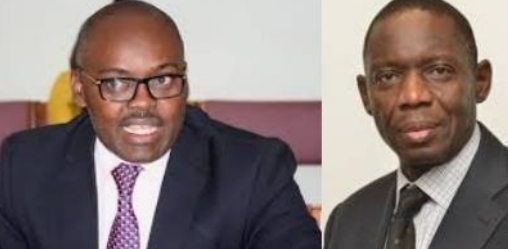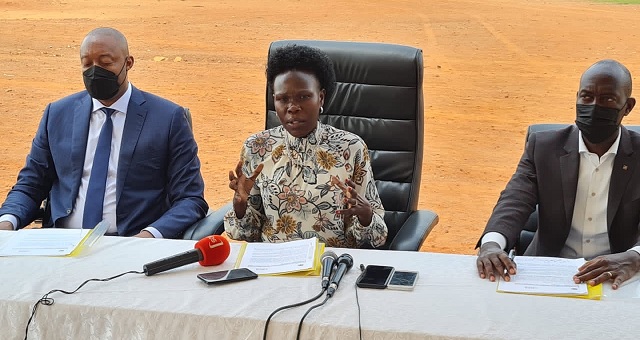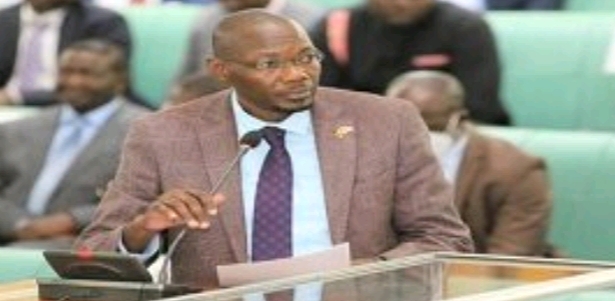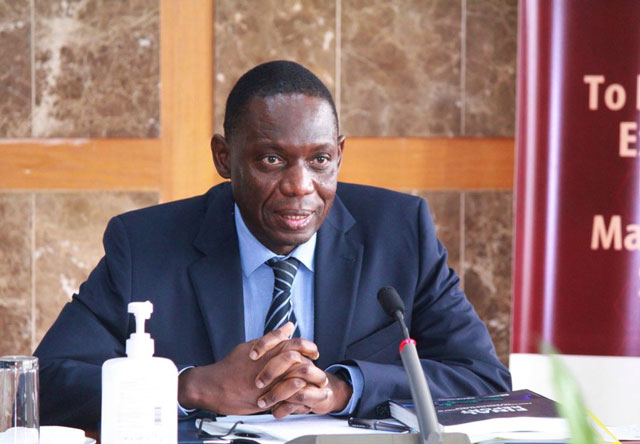Members of Parliament on the Committee of Commissions, Statutory Authorities, and State Enterprises (COSASE) have expressed concern over the prolonged absence of a substantive Governor at the Bank of Uganda (BoU). During a meeting on Tuesday, December 17, 2024, to review the Auditor General’s 2023/24 report, lawmakers questioned Deputy Governor Michael Atingi-Ego about the three-year delay in appointing a replacement for the late Emmanuel Tumusiime-Mutebile.
COSASE Chairperson Medard Sseggona criticized the failure to address the vacancy, emphasizing that the absence of a Governor undermines governance at the Central Bank. He challenged Atingi-Ego to take up the matter with President Yoweri Museveni, stating, “The Deputy Governor has a duty to remind the President about this vacancy. You cannot appoint Board members and neglect the Chairperson.”
Sseggona’s sentiments were echoed by Buzaaya County MP Martin Muzaale, who faulted the BoU Board for not prioritizing the issue. “It’s unacceptable for the Governor’s seat to remain vacant for three years. This should have been addressed at the highest level much earlier,” Muzaale said.
Nakaseke Central MP Allan Mayanja pressed Atingi-Ego on whether he would accept to continue overseeing dual roles if his term as Deputy Governor, set to expire in April 2025, was renewed. Atingi-Ego, however, refrained from commenting on the delay, asserting that such appointments are the prerogative of the President.
While BoU Board member Didas Nkurunziza cited Article 161(1) of the Constitution, which permits the Board to operate despite vacancies, MPs argued that the current situation violates good governance principles. “The Constitution provides for the appointment of a substantive Chairperson. The prolonged vacancy is unacceptable,” Sseggona reiterated.
In addition to concerns about governance, MPs grilled the Central Bank on its handling of a UGX 60 billion fraud involving erroneous international payments. The incident, which involved funds intended for global financial institutions being transferred to the wrong accounts, raised questions about BoU’s internal controls.
Atingi-Ego denied allegations of hacking, explaining that investigations revealed no breach of the Bank’s systems. He detailed two fraudulent transactions: one involving US$6.134 million meant for the World Bank, which was mistakenly sent to a Japanese company, and another involving US$8.596 million intended for the African Development Fund, also misdirected to Japan.
He stated that the anomalies were identified following a Ministry of Finance inquiry, prompting an internal audit, an independent forensic investigation, and a police report. While BoU managed to recover most of the funds, approximately US$391,000 was lost in transaction fees.
“We recovered US$8.205 million with the help of a UK-based bank. The funds have been credited back to the Consolidated Fund,” Atingi-Ego said. However, he acknowledged the reputational damage caused by the incident, adding that some of BoU’s international partners had raised concerns about the Bank’s systems.
Lawmakers were dissatisfied with the responses, accusing Atingi-Ego of withholding crucial details under the guise of ongoing investigations. “This Committee has powers akin to a High Court. You have a responsibility to provide answers,” said Kyadondo East MP Muwada Nkunyingi.
The MPs called for urgent reforms to address governance gaps and enhance oversight at BoU. They also urged the government to expedite the appointment of a substantive Governor to restore public confidence in the Central Bank.
“The delay in appointing a Governor undermines the Bank’s stability and governance. We demand accountability to protect public funds,” Sseggona concluded.
![]()



























